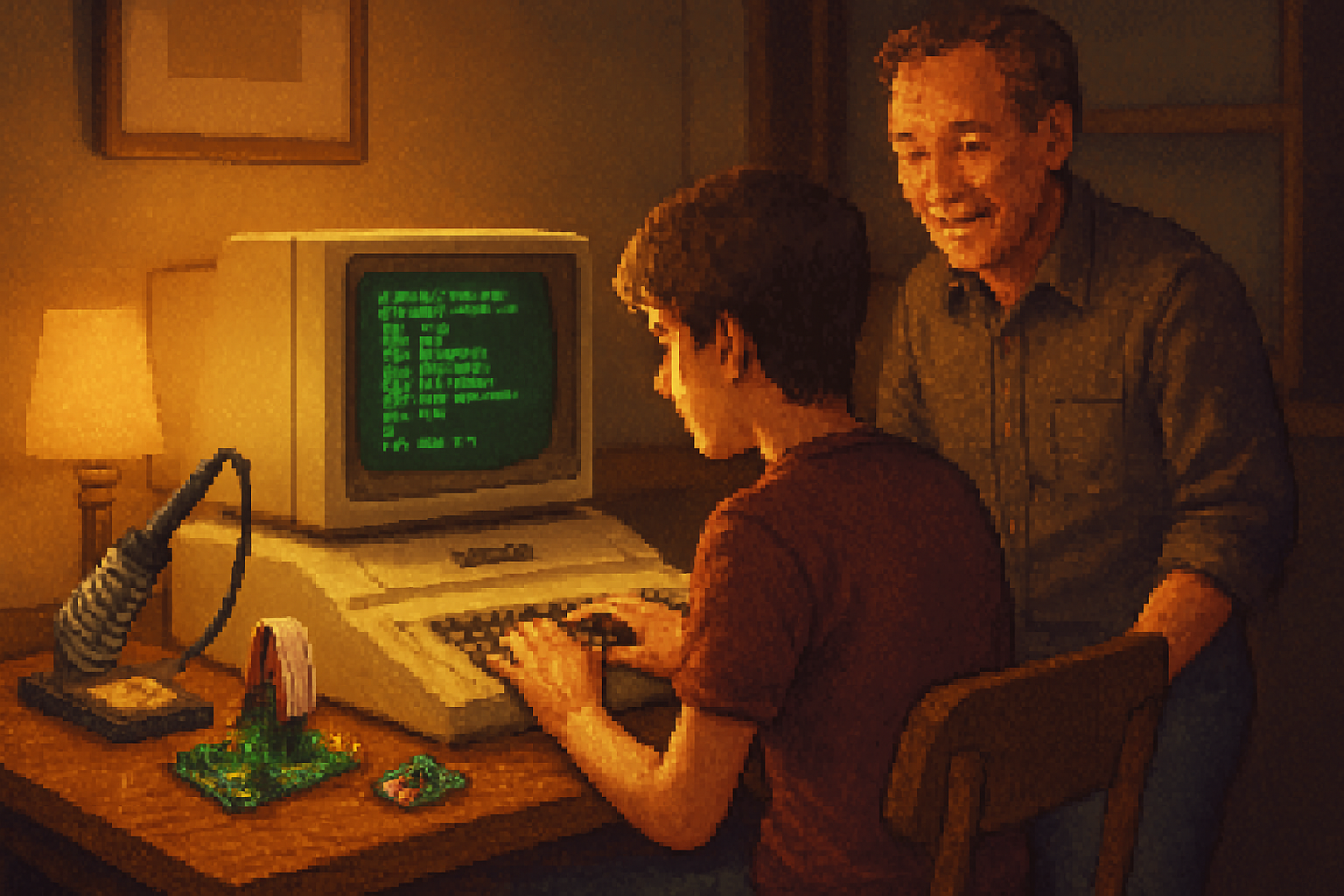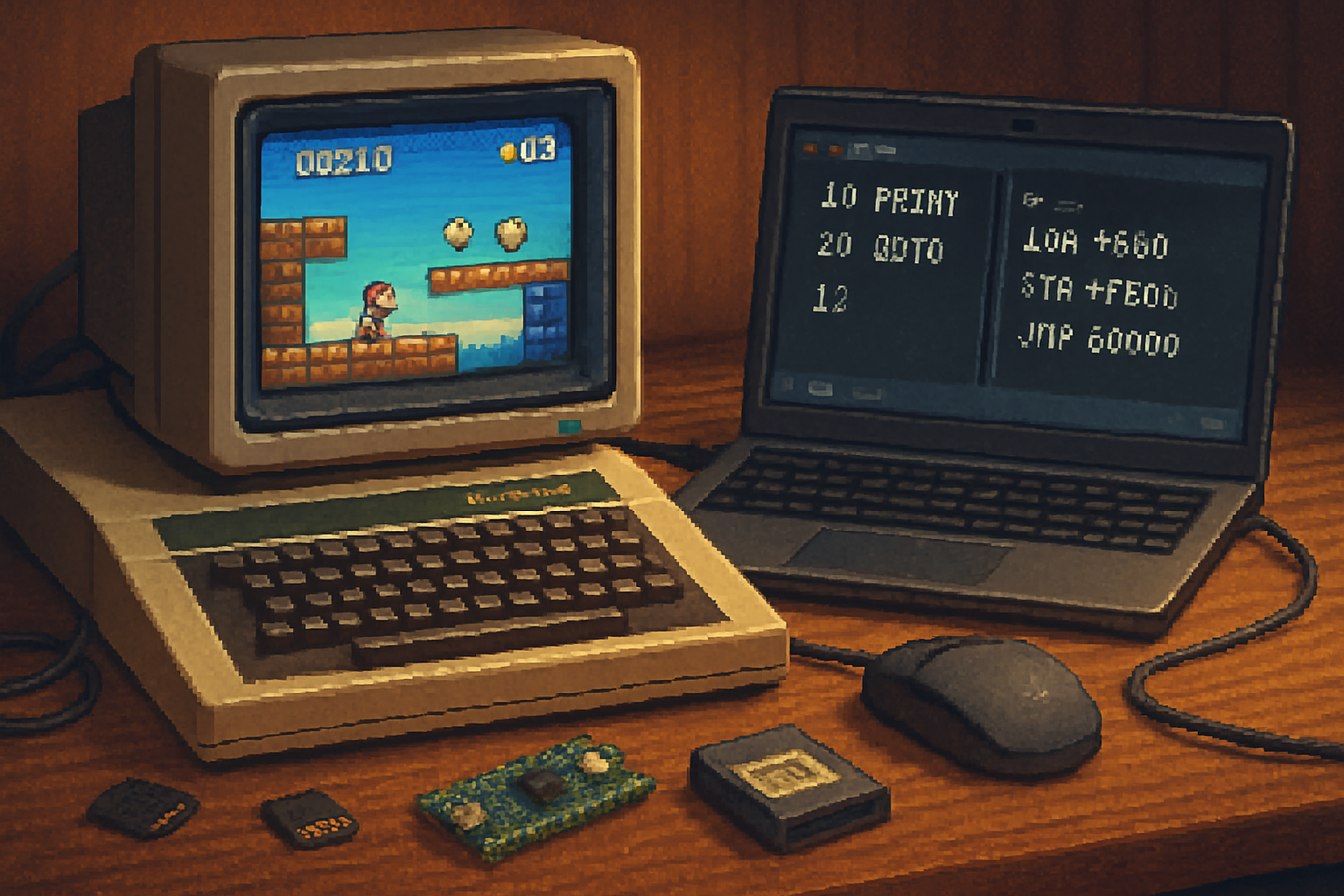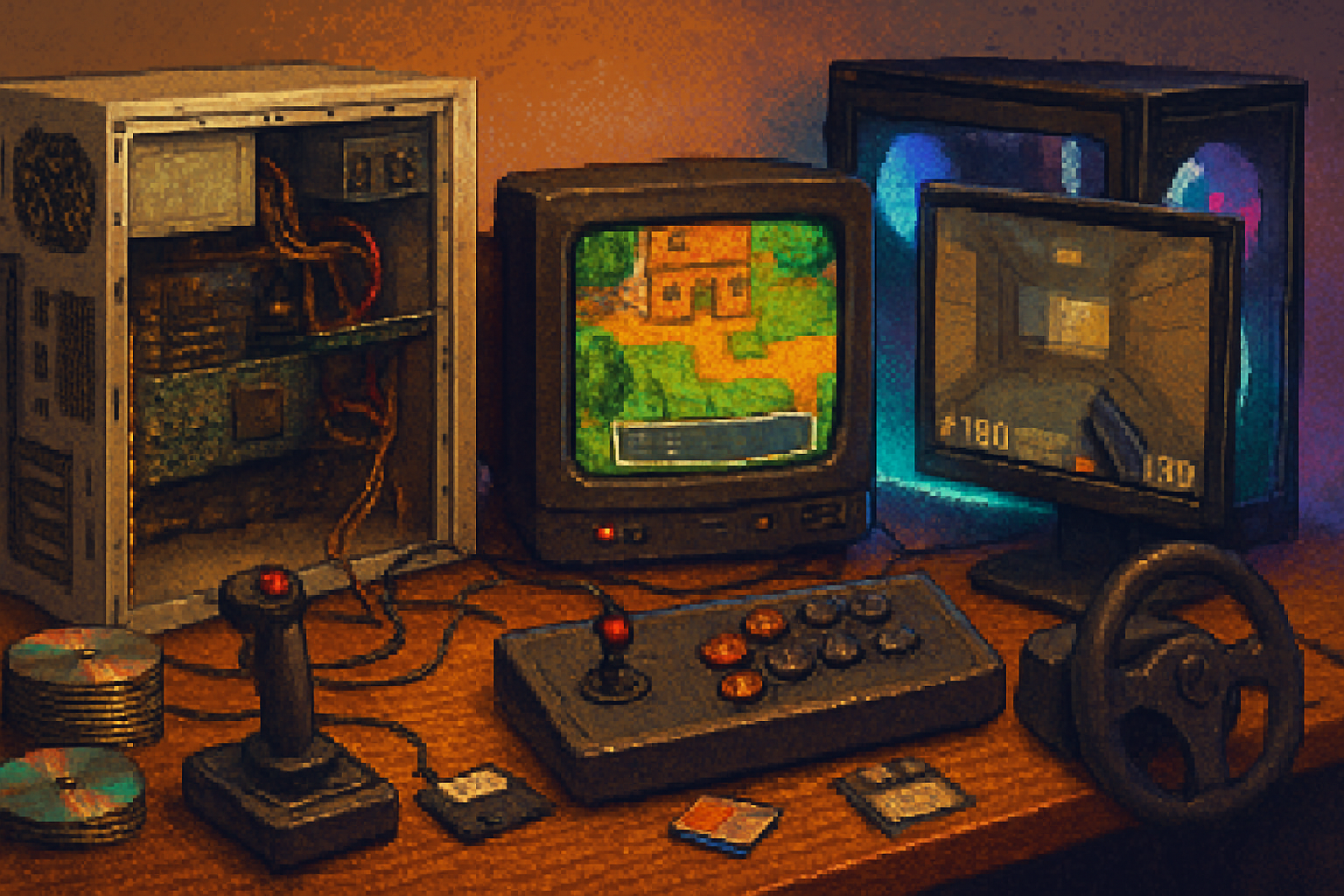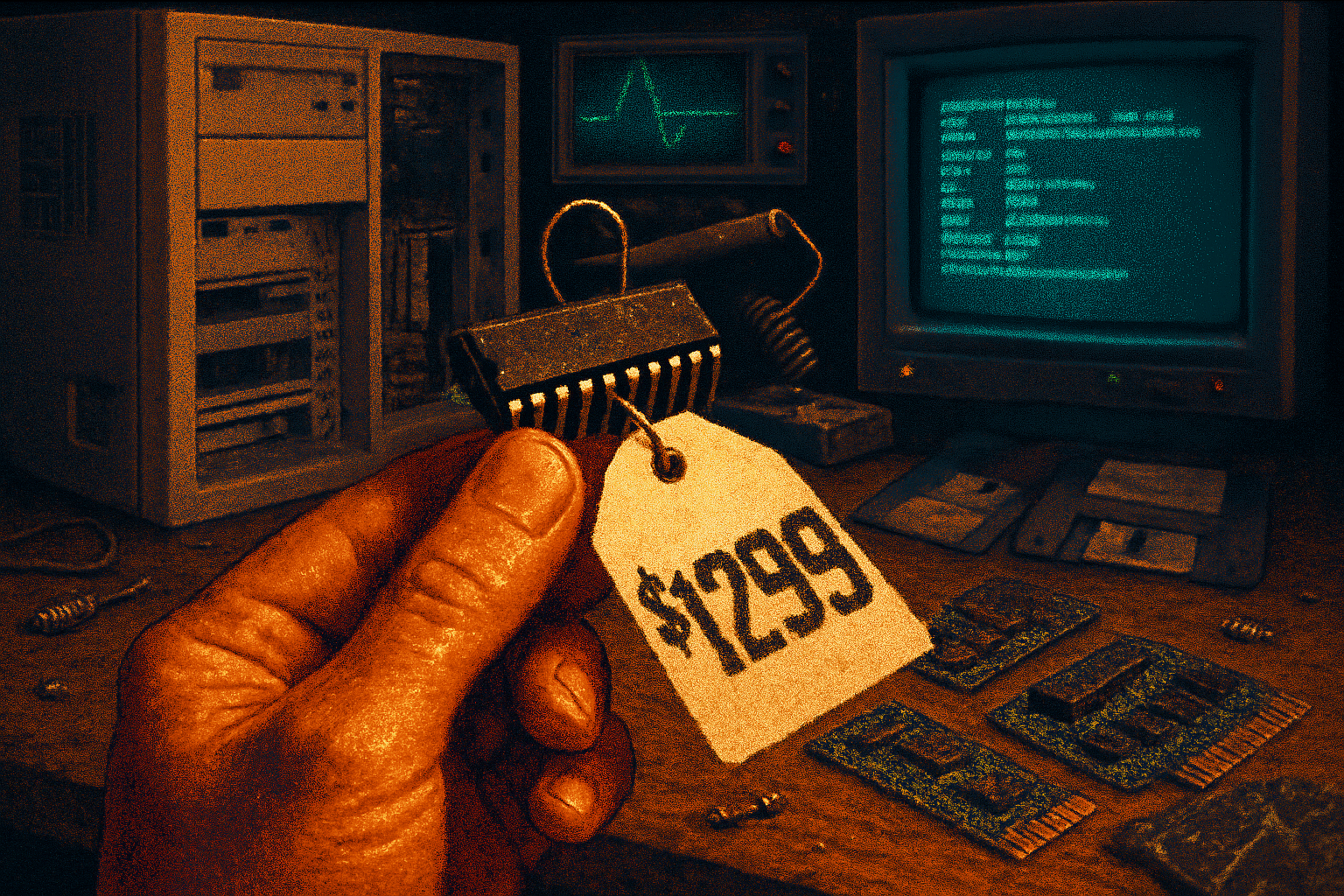· 6 min read
A Retro PC Community: Building Bridges Between Generations
How retro PC hobbyists-from elders who remember the buzz of dial-up to newcomers building pixel-perfect rigs-create community, teach skills, and preserve digital history across generations.
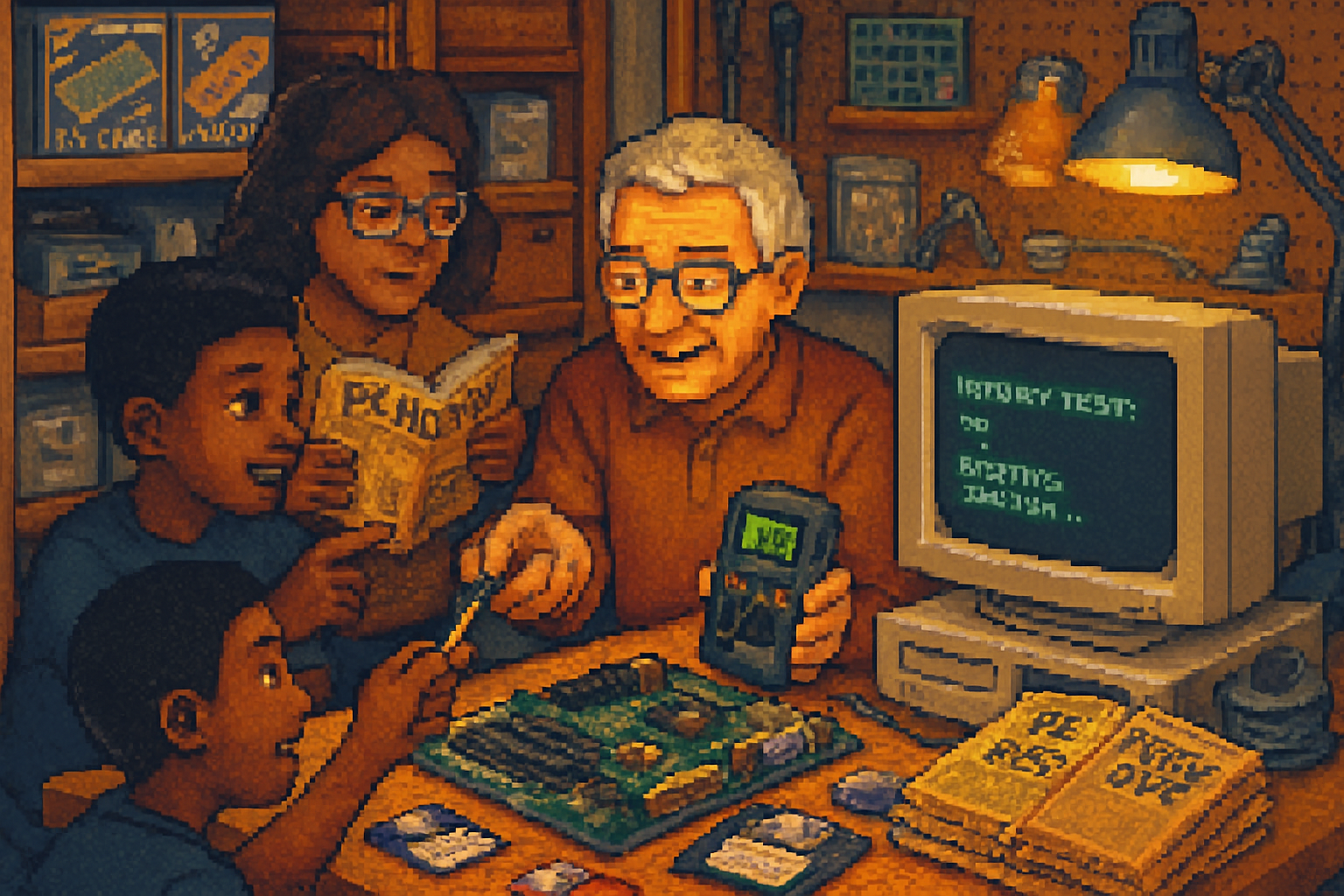
Intro
There’s a particular hum that comes with a vintage PC: the whirr of a floppy drive, the bright phosphor glow of a CRT, the satisfying clack of a mechanical key. That sound is also a cultural connector. The retro PC hobby-repairing, restoring, documenting and emulating computers from the 1970s through the 1990s-has grown into a thriving community that spans generations. Older enthusiasts bring lived memory and original hardware; younger members bring new tools, platforms, and a hunger to learn. Together they form a bridge between eras of technology and human experience.
Why retro PCs matter beyond nostalgia
- Preservation of digital heritage - Software, manuals, and configuration quirks are part of computing history. Preserving original machines and media keeps those artifacts alive in ways emulation alone sometimes cannot.
- Hands-on learning - Old hardware is often readable and repairable-perfect for learning electronics, OS internals, and troubleshooting fundamentals in an era of sealed devices.
- Cultural continuity - Stories, workflows, and design decisions are transmitted across generations, maintaining continuity and context for how modern tech evolved.
Where the community gathers
The retro PC community thrives in a mix of physical and digital spaces. Popular meeting points include:
- Online forums and mailing lists such as the Classic Computer mailing lists and enthusiast sites like the Vintage Computer Federation (vcfed.org).
- Subreddits and social media communities like r/retrobattlestations and other retro computing groups on Reddit (reddit.com/r/retrobattlestations).
- Restoration logs, blogs, and YouTube channels (for example, long-format nostalgia and restoration content is common on channels such as LGR).
- Emulation and FPGA projects-DOSBox for classic DOS-era software (dosbox.com), PC emulators like PCem, and FPGA recreations such as the MiSTer project (github.com/MiSTer-devel/Main_MiSTer).
- Physical meetups and shows like the Vintage Computer Festival (vcfed.org/events), local swap meets, and museum exhibits including the Computer History Museum (computerhistory.org).
How generations complement each other
- Storytelling and context - Older hobbyists often provide the cultural context-why a certain model mattered, what common practices were at the time, and how people used software and services. These stories make the artifacts meaningful rather than just dated hardware.
- Technical skills transfer - Seasoned restorers teach soldering, component testing, and safe capacitor discharge. Younger members bring fresh skills: surface-mount techniques, 3D printing cases and brackets, modern testing gear, software tooling for archiving, and social media-savvy ways to document projects.
- Modern tools meet old hardware - Newcomers often use Raspberry Pi, Arduinos, or FPGAs to interface with old peripherals, enabling modern conveniences (USB keyboards, SD cards for storage, networked file access) while learning how the original interfaces work.
Concrete examples of collaboration
- Restoration projects - A common social pattern is the restoration log-a photo- and text-heavy journal that walks through diagnosis, parts sourcing, repair steps, and the final result. These logs live on personal blogs, Reddit, and community forums, and frequently attract contributions from older members who remember service manuals or quirks of certain models.
- Software archaeology - Finding, verifying, and archiving old software and demos is a communal effort. Sites like the Internet Archive (
- Teaching with originals - Universities, makerspaces, and museums sometimes use retro hardware to teach architecture and low-level programming. Older members often volunteer as demonstrators, offering first-hand narrative and troubleshooting know-how.
Tools and approaches that bridge eras
- Emulation as entry point - Emulators like DOSBox let newcomers experience old software with minimal risk to fragile hardware. Simple DOSBox commands can mount a folder as a virtual C: drive:
mount c /path/to/games
c:
cd gamefolder
game.exe- FPGA and hardware re-implementations - Projects such as MiSTer recreate old hardware behavior in a modern, reliable board. These projects are a bridge: they let people experience faithful hardware logic while providing a modernized platform for development and education.
- Hybrid builds - People often combine original peripherals with modern controllers (USB-to-AT adapters, SD-card “floppy” emulators) to keep hardware functional without irreversible modifications.
Mentorship, inclusion, and the social fabric
The hobby is often explicitly intergenerational: local meetups and online communities encourage elders to teach and for newcomers to help with things like social media or digitization. This fosters:
- Interpersonal bonds - Shared projects, coffee at swap meets, and collaborative troubleshooting build friendships across age gaps.
- Accessibility - Newcomers with mobility or time limits can learn through emulation and documentation; elders who can’t travel can contribute knowledge and scanning efforts remotely.
- Ethical stewardship - Older collectors emphasize provenance and legal/ethical preservation; younger participants help with digital scanning, checksum verification, and hosting.
Practical tips to get involved (and help the bridge grow)
- Start small and document everything
- Keep a restoration log, even if it’s just a photo and a paragraph. It helps the next person and attracts mentors.
- Respect safety and ask before tinkering
- Classic CRTs and power supplies contain lethal voltages-seek guidance or watch tutorials from trusted sources before attempting repair.
- Use emulation to learn the software side
- DOSBox and similar emulators let you explore classic software without risking hardware. When you’re ready, move to real hardware to learn the electrical and mechanical layers.
- Join community events
- Attend a Vintage Computer Festival, a local meetup, or an online livestream. Small interactions lead to parts swaps, mentorship, and friendships.
- Give back in ways you can
- Scan manuals, help catalogue parts, tutor someone in soldering, or show a youngster how a BASIC program runs on original hardware.
A short safety note
Restoration is rewarding but comes with risks-electrical shock, toxic dust, and damaged components. Always research safe discharge procedures for capacitors, avoid working on CRTs without training, and take precautions for dust and chemical exposure. If in doubt, ask experienced community members for guidance.
The future: how the bridge strengthens tech culture
The retro PC scene is more than nostalgia; it is an active, civic-minded preservation movement and a teaching ecosystem. As the community grows, it will continue to:
- Build better archival practices and standardized repositories for software and documentation.
- Create educational curricula using original hardware and emulation to teach the fundamentals of computing.
- Expand accessibility tools so people with different abilities can participate in restoration and emulation.
Conclusion
Retro PC communities are living bridges between generations-places where memories meet engineering, oral histories meet documentation, and curiosity meets mentorship. Whether you’re the person who remembers booting an IBM PC on launch day or someone who wants to learn why 640KB mattered, there’s a place to contribute, learn, and connect. The hum of an old machine isn’t just sound; it’s a conversation across time.
Resources
- Vintage Computer Federation: https://vcfed.org
- Internet Archive (software and magazine archives): https://archive.org
- DOSBox emulator: https://www.dosbox.com
- MiSTer FPGA project: https://github.com/MiSTer-devel/Main_MiSTer
- r/retrobattlestations community on Reddit: https://www.reddit.com/r/retrobattlestations
- Vintage Computer Festival events: https://vcfed.org/events
- Computer History Museum: https://computerhistory.org
- Classic computer mailing list resources: https://classiccmp.org
